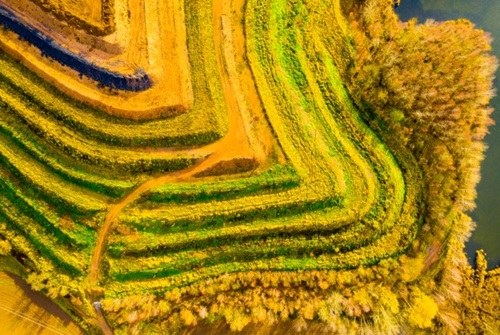The European Union aims to boost its capacity to access strategic metals and minerals. Achieving this goal requires innovative and digital solutions that address both environmental and social concerns. The Horizon Europe MINEYE project, with the University of Bologna’s participation, is focused on providing solutions that tackle environmental and societal challenges alike.
Coordinated by the Norwegian Geotechnical Institute (NGI), the project aims to develop innovative and competitive technologies for the entire mining lifecycle-exploration, extraction, closure, and reclamation phases, as well as for the restoration of decommisioned sites.
The University of Bologna, participating in the project with the Mining and Geomatic Engineering research groups of the Department of Civil, Chemical, Environmental, and Materials Engineering (DICAM), hosted the project’s second General Assembly, during which the first results achieved were presented. Particular attention was paid to the three case studies: the mineral deposits of Tharsis (Spain), the active mine of SO.RI.CO.M. (Albania), and the Norrbotten exploration area (Sweden).
“The assessment of mineral resources and reserves is a complex process, beginning with the geological exploration of the subsoil and ending with the analysis of the economic, environmental, and social factors of the extraction activity," says Sara Kasmaeeyazdi, researcher at the Department of Civil, Chemical, Environmental, and Materials Engineering of the University of Bologna, who is participating in the project. “In this context, digital modelling and remote sensing technologies play a vital role in promoting sustainable mining practices”.
The University of Bologna research team is leading exploration activities aimed at mapping both newly identified exploration areas (greenfields) and historical mining sites (brownfields).
“The information gathered from the case studies is integrated with geochemical anomalies, also derived from the processing of satellite images and geological maps”, says Kasmaeeyazdi.
The University of Bologna researchers are also leading the management and monitoring of mineral residues to evaluate the chance of recovery.

